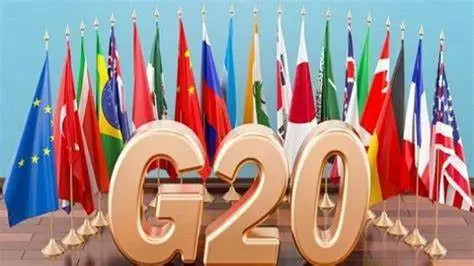Leaders from the world’s top economies gathered mid-November on the Indonesian resort island of Bali for a G20 Summit planned to review economic performance, examine challenges, and design solutions for emerging tasks but discussions on these were partially overshadowed by the Russia-Ukraine crisis, which started Feb 24.
Nonetheless, G20 members were able to agree on the final declaration, part of which vehemently condemned Russia’s Special Military Operation in Ukraine. In the final document adopted after considering different views among members on the situation, it explicitly noted the absolute violation of territorial rights and sovereignty of Ukraine. Chinese President Xi Jinping, in his speech, expressed opposition to Russia’s talk of using nuclear weapons in Ukraine.
As a full-fledged member, Indonesia took its turn of presidency this 2022. Each year the presidency of the G20 rotates, giving each country a chance to ensure the continuity of the agenda. Over the course of two days, some of this year’s priority issues listed on the site include global health architecture, digital transformation, and sustainable energy transition.
Our monitoring shows that a few leaders spoke for Africa. The key questions were on western industrialised countries’ contributions and support for attaining the planned sustainable development in Africa. It closely relates to North-South cooperation, as South-South cooperation has been sluggish and achieved little than its expected levels these several years.
The industrialised North have taken consistent steps to extend financial pact with the South; and this time, acknowledging the vital emergences, decided on new financial package within the framework of multilateralism for the South. This includes taking stock of the reallocation of International Monetary Fund (IMF) special drawing rights (SDR) from rich countries to poorer countries.
Reports show, for instance, that France has made a commitment, with a few other countries, to be able to reallocate 30 percent of ‘special drawing rights’ to the most fragile countries.
United States and European Union members support many countries with investment in various economic sectors in the South. Understandably, Africa still needs the Global North, and African leaders highly recognise this despite their consistent criticisms, particularly of the United States and Europe.
In addition to the question raised earlier, participating leaders further called for broader Africa’s representation on G20. French President Emmanuel Macron told world leaders gathering that Paris “supports the full and complete integration of the African Union into the G20”, and comparatively in the same way as the European Union is a member.
“If we want to express real solidarity with the South, we must accept that the African Union, like the European Union, comes to the table,” Macron declared during a press conference.
South Africa is currently the only African member of the G20. It was represented at the conference by the President Cyril Ramaphosa. He called for the African Union to be included as a permanent member of the Group of 20 leading economies. His argument was that the representation would allow African countries to more effectively press the G20 to implement its pledge to help the continent to cope with climate change.
Senegalese President Macky Sall, who is the current Chairperson of the African Union, has previously called for an overhaul of international governance, and urged greater African representation on international bodies such as the UN Security Council and the G20. In October, for instance, Sall said multilateralism had to “serve the interests of all” or else risk the “loss of legitimacy and authority”.
In addition to African Union and South Africa, there were three more African voices at the G20. Director-General Tedros Adhanom Ghebreyesus officially represented the World Health Organisation (WHO), but at the same time seen as an African voice. In his capacity as the head of WHO, he could convincingly speak on any related African questions.
Ngozi Okonjo-Iweala is the seventh Director-General of the WTO. She took office on 1 March, 2021, becoming the first woman and the first African to serve as Director-General. Her term of office runs until 31 August, 2025.
She is a global finance expert, an economist and international development professional with over 30 years of experience working in Asia, Africa, Europe, Latin America and North America. Reports indicate that Okonjo-Iweala is a citizen from the Federal Republic of Nigeria. With this African origin, she has an African voice at the G20.
Behind the scenes was also Rwandan President Paul Kagame. Since coming to power, he has been influential on Africa’s role on the international stage and regional bodies. Rwanda’s economy has grown rapidly under Kagame’s presidency, appropriated credits and praises from many foreign donors and investors as well as global political leaders. He served as the AU Chairperson in 2019. According to official sources, at the G20, he represented the NEPAD – the New Economic Partnership for Africa’s Development.
What Africa was looking for is a permanent seat, not as an invited guest participant. South Africa is currently the only African member of the G20. The African Union views this membership as an opportunity to boost the image of the continent. It means in future, the African Union as a permanent member, among all the privileges, will hold the G20 presidency and host the G20 summit in Addis Ababa, Ethiopia.










